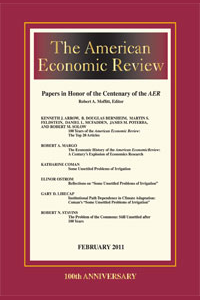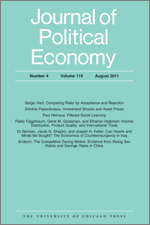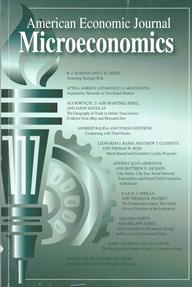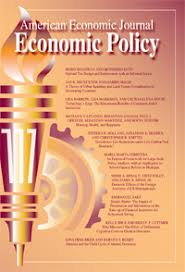
Linton, O., Pan, J. and Wang, H.
Estimation for a nonstationary semi-strong Garch(1,1) model with heavy-tailed errors
Econometric Theory
Vol. 26(1) pp. 1-28 (2010)
Abstract: This paper studies the estimation of a semi-strong GARCH(1,1) model when it does not have a stationary solution, where semi-strong means that we do not require the errors to be independent over time. We establish necessary and sufficient conditions for a semi-strong GARCH(1,1) process to have a unique stationary solution. For the nonstationary semi-strong GARCH(1,1) model, we prove that a local minimizer of the least absolute deviations (LAD) criterion converges at the rate $\sqrt n $ to a normal distribution under very mild moment conditions for the errors. Furthermore, when the distributions of the errors are in the domain of attraction of a stable law with the exponent K ?(1,2), it is shown that the asymptotic distribution of the Gaussian quasi-maximum likelihood estimator (QMLE) is non-Gaussian but is some stable law with the exponent K ?. The asymptotic distribution is difficult to estimate using standard parametric methods. Therefore, we propose a percentile-t subsampling bootstrap method to do inference when the errors are independent and identically distributed, as in Hall and Yao (2003). Our result implies that the least absolute deviations estimator (LADE) is always asymptotically normal regardless of whether there exists a stationary solution or not, even when the errors are heavy-tailed. So the LADE is more appealing when the errors are heavy-tailed. Numerical results lend further support to our theoretical results.
Author links: Oliver Linton
Publisher's Link: http://journals.cambridge.org/action/displayAbstract?fromPage=online&aid=7045964&fulltextType=RA&fileId=S0266466609090598 ![]()




